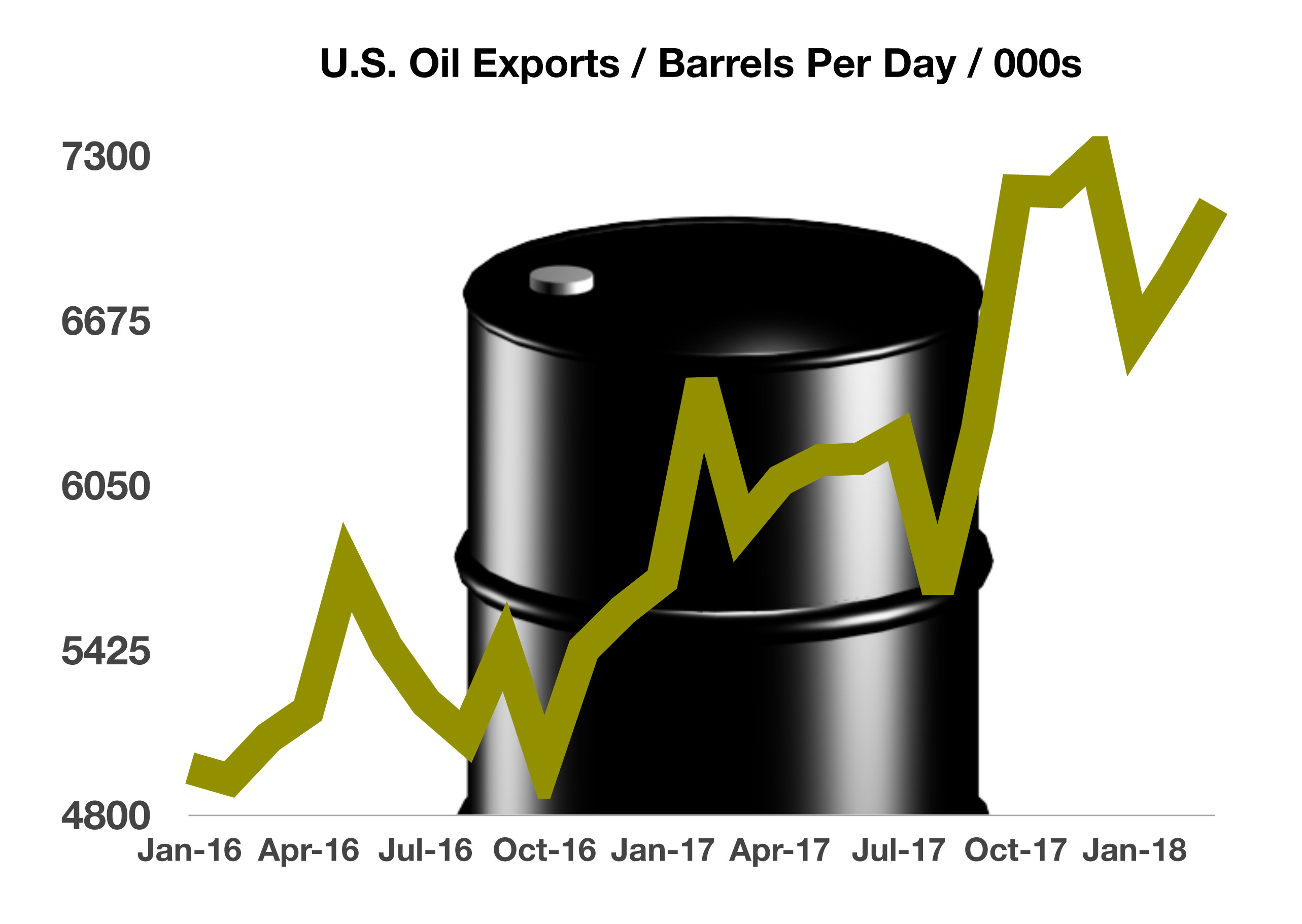

Scott Coffee
Registered Representative
10205 Westheimer, Suite 500
Houston Tx, 77042
832.866.9476
Record U.S. Oil Exports Help Narrow Trade Deficit – Oil Industry Overview
Technology driven drilling and oil exploration has elevated the U.S. to the third largest oil producer in the world, behind Russia and Saudi Arabia. The EIA estimates that U.S. oil, priced as West Texas Intermediate (WTI) in the energy markets, will continue to be less expensive than its international counterpart, Brent through 2019. Since commodities are price based, the demand for less expensive U.S. oil is expected to rise.
The Commerce Department announced that the U.S. exported a record amount of oil and fuel in April, helping to narrow the nation’s trade deficit. U.S. producers exported nearly $20 billion in petroleum products in April to other countries. Petroleum products exported to other countries include crude oil, liquified gases, and gasoline.
The U.S. trade deficit shrank for the second consecutive month in April by 2.1%, partly helped by the rising trend in U.S. petroleum exports. Ironically, higher oil prices have become beneficial for the U.S., as oil industry producers and exporters are seeing rising profits and higher wages. Higher oil prices for decades were a net negative for Americans because of higher fuel prices at the pump, but with no export benefit.
A 40-year ban on U.S. oil exports was lifted in December 2015 as the House of Representatives and Senate passed a spending bill that included the dismantling of the decades-old rule. In response to the Arab oil embargo, the U.S. imposed regulations in 1975 that restricted the exportation of crude oil. For years, oil companies and industry leaders have sought a relaxation of the export restrictions in order to compete in the global oil markets.
WTI is also known as Texas light sweet because of its relatively low density, light characteristics and sweet because of its low sulfur content. Conversely, Brent Crude is a bit heavier and not as sweet, thus making WTI a higher quality oil and more desirable worldwide. The lighter and sweeter WTI is easier and less expensive to refine and distill into gasoline, diesel, jet fuel, and other fuel products.
Sources: IEA, EIA, Commerce Department
